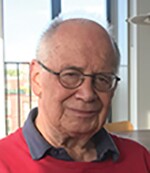
Johannes Bruining is a professor of geoenvironmental engineering, civil engineering, and geosciences at Delft University of Technology, visiting professor at the Instituto Nacional de Matemática Pura e Aplicada, and lecturer on reservoir engineering at Anton de Kom Universiteit Paramaribo Suriname.
As review chairman for SPE Reservoir Evaluation and Engineering, he was named Outstanding Technical Editor; for SPE Journal, he was named Outstanding Review Chair and received the Reward of Appreciation and Reward of Excellence. For his work on the SPE Editorial Review Committee, he was honored with the Outstanding Service Award.
Bruining also received the SPE North Sea Regional Technical Award for Distinguished Contribution to Petroleum Engineering in the Area of Reservoir Description and Dynamics, and the SPE Distinguished Achievement Award for Petroleum Engineering Faculty.
He holds MSc and PhD degrees from the University of Amsterdam.
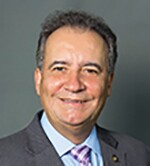
JC Cunha is a professor of petroleum engineering at Texas A&M University and formerly a tenured professor at the University of Alberta.
He has occupied several managerial, operational, and research positions at Petrobras, Ecopetrol America, and the US Bureau of Safety and Environmental Enforcement.
In his 30 years with SPE, Cunha has served on the SPE Board as technical director of Management and Information and as a member and session chair of numerous SPE conferences, the JPT Editorial Review Board, the Technical Communities Coordinating Committee, and the Drilling Technical Interest Group.
Among his honors, Cunha was an SPE Distinguished Lecturer during 2010–2011 and was among the first SPE members to receive the A Peer Apart Award in 2007. He received the 2021 SPE/AIME DeGolyer Distinguished Service Medal.
He has been a technical editor for JPT, SPE Drilling and Completion, and the SPE Journal. Besides authoring dozens of SPE technical papers, he coauthored two SPE books.
Cunha holds a BS degree from Universidade Federal de Juiz De Fora, an MSc degree from Universidade Federal de Ouro Preto, and a PhD from The University of Tulsa.

Pierre E. d’Huart leads the offshore research and development efforts at Saipem, which allows him to connect and share knowledge with industry peers. Earlier in his career, he worked as a project engineer on several offshore construction projects in Egypt, Nigeria, Brazil, and Norway. He also serves as a reserve officer with the French Navy.
Among his career highlights, d’Huart put in place the first-ever subsea drone operations service contract, and he led a team of engineers in building the heaviest and deepest pipeline ever built.
With SPE, d’Huart served on the Young Professionals Coordinating Committee and was elected to chair the board of directors of the France Section. He also supports the projects, facilities, and construction technical discipline and has published several articles and presented papers at the Offshore Technology Conference.
For his contributions to the Young Professionals, d’Huart was honored with the Regional Outstanding Young Professional Award.
He holds MSc degrees from the École Spéciale des Travaux Publics (ESTP) and the IFP school, both in France.
He holds MSc degrees from the ESTP school and the IFP school.
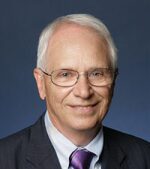
Ted Frankiewicz has worked as principal scientist and group head with Occidental Petroleum, senior consultant at Unocal Corporation, vice president for process solutions at Natco Group, and division manager and engineering advisor at SPEC Services. He holds 15 patents.
In his 25 years with SPE, he served the US Gulf Coast Section and LA Basin Section as a board member, section vice chair, chair, and program chair. He was chair for two Western North America regional meetings and six years of the SPE Annual Technical Conference and Exhibition. In addition, he served on the steering committee for seven SPE workshops or forums.
As a member of the JPT Editorial Review Board, Frankiewicz peer reviewed SPE articles for 9 years. He is a past recipient of the SPE Western North America Regional Service Award and the SPE International Award for Projects, Facilities, and Construction, and was named an SPE Distinguished Lecturer.
He holds a BS degree from Oberlin College and a PhD from The University of Chicago.

Eduardo Gildin is a professor of petroleum engineering at Texas A&M University and previously held post-doctoral positions with Rice University and The University of Texas at Austin. He has published more than 120 papers in peer-reviewed journals and conferences.
He has been an associate editor for the SPE Journal with involvement in SPE technical committees, the Reservoir Simulation Conference, the Latin American and Caribbean Petroleum Engineering Conference, and SPE workshops.
As an associate professor, Gilden was the recipient of the Texas A&M Dean of Engineering Excellence Award and the College of Engineering Outstanding Contributions Award. He held the Ted H. Smith ‘75 and Max R. Vordenbaum ‘73 DVG Developmental Professorship and the CJ Craft Fellowship in Petroleum Engineering, and currently holds the Class of 1975 DVG Developmental Professorship.
Gildin holds a BS degree from Fundação Educacional Inaciana (FEI), an MSc degree from the University of Sao Paulo, and a PhD from The University of Texas at Austin.
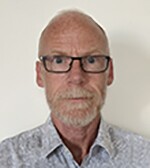
Kristian Jessen is a professor of chemical engineering and materials science at the University of Southern California and previously was a research associate and acting assistant professor in the Department of Petroleum Engineering at Stanford University.
Among Jessen’s SPE honors, he received the Reservoir Description and Dynamics Award, the Outstanding Faculty Award, Outstanding Associate Editor Award for the SPE Journal, and Outstanding Technical Editor Award for SPE Reservoir Evaluation and Engineering.
He was a member and co-chair of the technical program committee for SPE Western North America regional meetings, a member of the SPE Continuing Education Committee, and session chair for the SPE Reservoir Simulation Symposium. For 4 years he served as associate editor of the SPE Journal.
Jessen’s written works include more than 125 technical papers and book chapters.
He holds BSc, MSc, and PhD degrees in chemical engineering from the Technical University of Denmark.
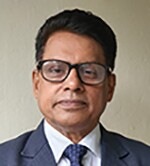
Tarkeshwar Kumar is the emeritus fellow in the Department of Petroleum Engineering, Indian School of Mines. Previously he was director of the National Academic Institutions and a petroleum engineer for the Assam Oil Company, India.
He has been a reviewer of the SPE Formation Evaluation and Engineering journal and the Canadian Journal of Petroleum Technology. He was a member of the program committee for SPE’s India Oil and Gas Conference and Exhibition and for SPE’s Workshop on Workover and Stimulation.
Among his honors, Kumar was recipient of the National Scholarship Award, the Commonwealth Scholarship Award, and the National Mineral Award by the Government of India for outstanding contributions in the area of oil and gas.
Kumar holds a BTech and MTech from the Indian School of Mines and a PhD from Heriot-Watt University.
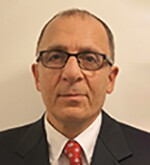
Ergun Kuru is a professor and the director of the School of Petroleum Engineering at the University of Alberta. Previously, he was a faculty member at the Middle East Technical University in Turkey and at the Petroleum Institute in Abu Dhabi. For more than 30 years he has taught courses and conducted research on drilling, well completion, and related subjects.
His service to SPE includes participation on the ATCE Drilling Engineering Program Committee, the Global Training Committee, and the Education and Accreditation Committee, and on the Editorial Review Board for the SPE Drilling and Completion journal. He was associate editor of the SPE Journal of Canadian Petroleum Technology and serves on the JPT Editorial Review Board.
In recognition of his contributions, Kuru received the SPE Canada Region Distinguished Achievement Award for Petroleum Engineering Faculty.
He holds a BSc degree from Middle East Technical University and MSc and PhD degrees from Louisiana State University.

Erin McEvers is a consulting reservoir engineer who has held positions with Tom Brown Inc., Encana, Cimarex, and Antero Resources.
She has served on the SPE Denver Section Board of Directors, the SPE Distinguished Lecturer Committee, and as the Rocky Mountain North America regional director from 2015 to 2018.
McEvers holds a BS degree in petroleum engineering from the Colorado School of Mines.
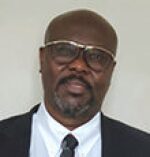
Graham Mensa-Wilmot is technical director of XCIDRILL Technology with a focus on developing drilling technologies, downhole tools, processes, strategies, and holistic solutions that facilitate cycle time and operational costs reductions on drilling projects.
He has 36 years of global industry experience, holds 52 patents, and has authored 61 technical papers and presentations on drilling technologies.
An SPE Distinguished Lecturer, past recipient of SPE’s Volunteer Award, and an IADD board member, Mensa-Wilmot serves on the SPE/IADC Drilling Conference Program Committee, the SPE Drilling and Completions journal editorial committee, and the advisory committee for SPE-GCS’s Drilling Study Group. He also serves on the JPT Editorial Review Board.
A registered professional engineer, Mensa-Wilmot holds an MSc degree in drilling engineering from the University of Petroleum and Gas in Romania.
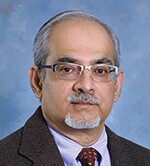
Srikanta Mishra is the technical director for geo-energy modeling and analytics at Battelle Memorial Institute and technical lead for the US Department of Energy’s SMART Initiative (science-informed machine learning to accelerate real-time decisions in subsurface applications). Previously, he was director of geologic waste isolation services at Intera Inc. and adjunct professor at The University of Texas at Austin.
From 2018 to 2019, Mishra toured 17 countries to deliver 34 lectures on big data analytics. He has also served as a member of the Unconventional Resources Technology Conference Technical Program Committee and the SPE Pressure Transient Testing Committee.
He is the author of more than 200 technical publications and three books on subsurface reservoir engineering and data analysis.
Mishra holds a BTech degree from the Indian School of Mines, an MS degree from The University of Texas at Austin, and a PhD from Stanford University.

Odunayo Oladugba is a senior petroleum engineer with the Nigerian Petroleum Development Company where he supports Nigerian liquefied natural gas (NLNG) Train-7 upstream gas projects with the goal of boosting Nigeria’s NLNG output by 35%.
He currently serves as treasurer of the SPE Nigeria Council, chair of SPE’s Benin City Nigeria Section, chair of the Nigeria Annual International Conference and Exhibition, and as a member of the SPE Nigerian Council Critical Review Committee and the SPE Nigeria Digital Transformation and New Technology Committee.
Oladugba’s professional commendations include this year’s SPE Nigeria Council Leadership Award, the SPE Nigeria Leadership Service Award, the SPE Nigeria Public Service Award, and the SPE Young Member Outstanding Service Award.
He holds a BEng degree from the University of Benin and an MSc degree from Heriot-Watt University, and currently is an executive MBA candidate at the University of Calgary. Oladugba is a certified project management professional.
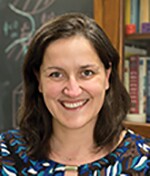
Maša Prodanović is an associate professor and Chevron Centennial Teaching Fellow in the Hildebrand Department of Petroleum and Geosystems Engineering at The University of Texas at Austin.
She is an applied mathematician-turned-engineer with expertise in direct simulation of flow and particulate transport in porous and fractured media, porous media characterization (especially based on 2D and 3D images of rock microstructure), unconventional resources, and data curation.
Prodanović is the recipient of the SPE Faculty Innovative Teaching Award, and the SPE Formation Evaluation Regional Award for development of the Digital Rocks portal. In 2009, she was recognized for her Outstanding Young Professional Paper at the SPE Annual Technical Conference and Exhibition. She also served on the SPE Open Subsurface Virtual Workshop Organizing Committee.
Prodanović holds a BS degree from the University of Zagreb, Croatia, and a PhD from the State University of New York at Stony Brook.

Art J. Schroeder Jr. is cofounder, board member, and CEO of Subsea Shuttle and Safe Marine Transfer. He also founded Energy Valley and worked for Amoco and BP in operations, engineering, construction, strategy development, and crisis-management roles.
Schroeder has primarily served the SPE Gulf Coast Section (GSC) where he was cofounder, vice chairman, and chairman of the Digital Energy Study Group, co-chair of the first SPE eBiz Conference and Tradeshow, and chair of the Board of Financial Advisors. As a section board member, he helped lead Emerging Technology Workshops and the Long-Range Planning and Strategic Planning Committees.
Among his honors, he received the GCS Regional Management and Information Award, the SPE Management and Information Award, and a Special Citation from the OTC.
Schroeder holds BS and MS degrees from the Georgia Institute of Technology and an MBA from the University of Houston.
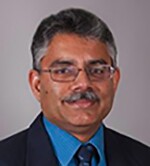
Sanjay Srinivasan is a professor, department head, and chair of the John and Willie Leone Family Department of Energy and Mineral Engineering at Pennsylvania State University.
Prior to joining Penn State, Srinivasan was a professor at The University of Texas at Austin where he held the Frank Jessen Fellowship in Petroleum and Geosystems Engineering.
Srinivasan served on the editorial board of the SPE Reservoir Evaluations journal and on the organizing committee of several Applied Technology Workshops. He is a member of SPE’s Reservoir Description and Dynamics Committee.
He received the SPE Award for Outstanding Technical Editor, the SPE Southwest Region Reservoir Description and Dynamics Award, and the SPE Faculty Pipeline Award.
Srinivasan holds a BS degree from the Indian School of Mines, an MS degree from the University of Southern California, and a PhD from Stanford University.
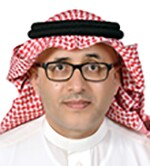
Abdullah Sultan is the dean of research oversight and coordination at King Fahd University of Petroleum and Minerals (KFUPM) and associate professor in the Department of Petroleum Engineering, where he has supervised more than 25 graduate students. He has published more than 80 journal papers, 95 conference papers, and five book chapters, and holds 13 patents.
In his 15 years of SPE membership, Sultan has served as faculty advisor for the SPE chapter at KFUPM, contributed to technical papers, served on executive and technical committees for a number of SPE events, and chaired or co-chaired sessions at SPE conferences.
He was the recipient of the SPE Distinguished Achievement Award for Petroleum Engineering Faculty in 2018.
Sultan holds BSc and MSc degrees from King Fahd University of Petroleum and Minerals and a PhD from Texas A&M University.

Erin Summers is the marketing manager, North America, for KAPPA Engineering. Prior to this position, she held sales and business development roles at Fekete and Enersight.
Within months of joining the industry in 2007, she began volunteering with SPE Young Professionals in Calgary, where she held positions including secretary, events coordinator, and treasurer. Later, she served the Calgary Section Board on the Membership Committee and the Giovanni Paccaloni Young Professional Service Award Committee, and also served as events coordinator and section chair.
For her work with SPE, she was recognized with the Regional Service Award, the Innovation in Section Activities Award, and the Outstanding Leadership and Service Award for the SPE Calgary Section.
Summers holds a bachelor of music degree from the University of Calgary and has completed several courses in upstream oil and gas at Alberta’s Southern Institute of Technology.

Rick Walker began his 42-year career in the oil and gas industry at Superior Oil. After Superior’s acquisition by Mobil Oil, he became a reservoir engineer and then technoscout, linking industry research to the technical needs of business units. One merger later, he became part of ExxonMobil, working reservoir Venezuelan heavy oil, Canadian Atlantic offshore projects, tight-gas developments, and offshore Angola. After retiring from ExxonMobil, he spent 6 years with BHP Billiton in technical and leadership positions, primarily focusing on reservoir engineering aspects of unconventional reservoirs.
Among his SPE activities, Walker worked with industry professionals on the Unconventional Resources Technology Conference, in roles ranging from organizing committee member to conference chair. He also served on the Reservoir Advisory Committee, as chair on the DeGolyer and Distinguished Service Award Committee, and on the committee charged with developing guidelines for SPE technical reports.
Walker holds a BS degree from The University of Oklahoma and is a registered professional engineer.

Marshall C. Watson is president of ACT Operating Co. where he has worked for 36 years. He is the Roy Butler chair and chair of the Bob L. Herd Department of Petroleum Engineering at Texas Tech University. He began his career with Shell as a production and reservoir engineer before working for other major and independent oil companies.
Watson authored or coauthored several presentations, technical papers, and courses and has held numerous research grants in the fields of economics, production engineering, and wellbore integrity. He holds three patents and is a registered professional engineer.
He serves on the SPE committee responsible for writing the CO2 Storage Resources Management System (SRMS) document and is working on the companion SRMS Applications Guidelines document.
Among his honors for academic contributions, Watson received the SPE Teaching Fellow Award and the regional SPE Distinguished Achievement Award for Petroleum Engineering Faculty.
He holds a BS degree in chemical engineering from Cornell University and MS and PhD degrees in petroleum engineering from Texas Tech University.

Ali AlYousef is chief technologist of reservoir engineering technology at Saudi Aramco’s Upstream Advanced Research Center, with a focus on waterflooding, improved oil recovery (IOR), enhanced oil recovery (EOR), and advanced reservoir evaluation/monitoring. He currently oversees the implementation of pilots on CO2-EOR, SmartWater, and field deployment of electromagnetic-based technologies, advanced tracers, and reservoir evaluation-and-monitoring applications.
AlYousef has written more than 100 conference papers and 47 journal publications and holds 35 patents with another 30 patents pending. He has chaired several SPE workshops and forums, helped organize SPE conferences, and taught courses on waterflooding and IOR/EOR.
He was a recipient of SPE’s IOR Pioneer Award and Saudi Aramco’s President and CEO Excellence Award and was elected as a 2021 Fellow of the Energy Institute (EI), the highest level of EI recognition.
AlYousef holds a BS degree from King Fahd University of Petroleum and Minerals and MS and PhD degrees from The University of Texas at Austin.
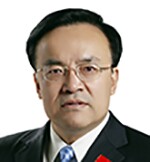
Laibin Zhang is a professor in the Department of Safety Engineering at China University of Petroleum, Beijing (CUPB), where he is also past president. His research interests include safety inspection, fault diagnosis, risk assessment of oil and gas systems and facilities, and integrity management of large oil and gas pipelines.
He has served as chair of the Worldwide Energy University Network, the World Conference of Oil and Gas Industry Safety, and the Petroleum Science journal and Petroleum Science Bulletin. He has been vice chair of the China National Committee for the World Petroleum Council and vice president of the Beijing Energy Association.
Zhang established the SPE Chapter at CUPB, the first student chapter in China. He holds 37 invention patents and nine software copyrights, and has published one monograph, one textbook, and more than 200 technical papers.
He holds BS, MS, and PhD degrees from the China University of Petroleum.
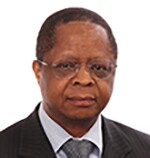
Pacelli L.J. Zitha is professor of production engineering and director of the Geosciences and Engineering Laboratory at the Delft University of Technology. Previously, he worked at BEICIP laboratories and at the French Petroleum Institute and also directed the Dietz Laboratory. He was senior research advisor for Shell Global Solutions.
Zitha served on the SPE Research and Development Advisory Committee and twice as chairman of the SPE European Formation Damage Conference. He currently is the faculty advisor on the board of the SPE Netherlands Section.
He holds several patents on the use of magnetic fluids for drilling and cementing oil wells and has published more than 170 scientific and technical papers. He is the co-editor of one book and editor of one book.
He holds BSc, MSc, and PhD degrees from the University Pierre et Marie Curie.

